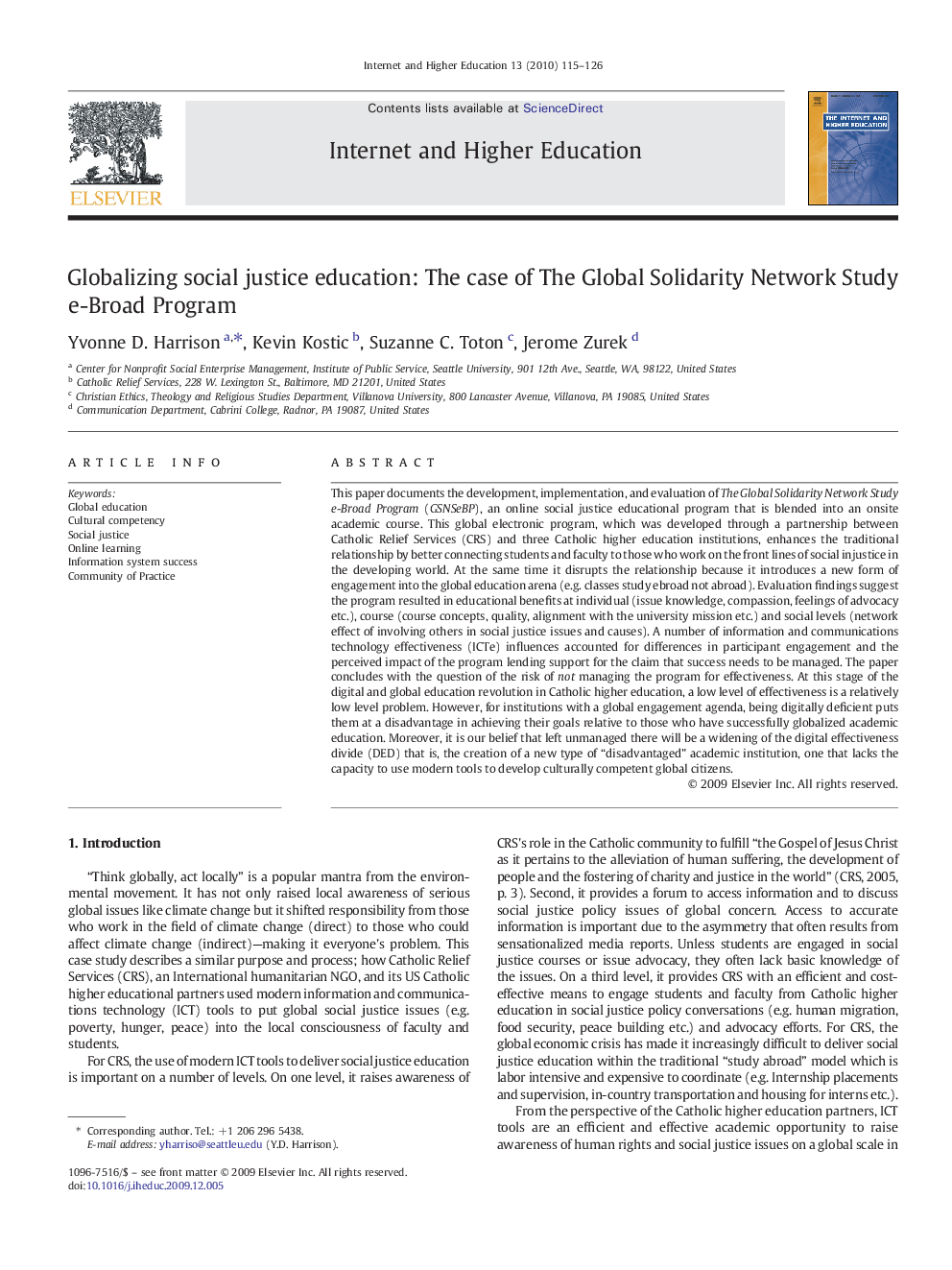| کد مقاله | کد نشریه | سال انتشار | مقاله انگلیسی | نسخه تمام متن |
|---|---|---|---|---|
| 357993 | 619972 | 2010 | 12 صفحه PDF | دانلود رایگان |

This paper documents the development, implementation, and evaluation of The Global Solidarity Network Study e-Broad Program (GSNSeBP), an online social justice educational program that is blended into an onsite academic course. This global electronic program, which was developed through a partnership between Catholic Relief Services (CRS) and three Catholic higher education institutions, enhances the traditional relationship by better connecting students and faculty to those who work on the front lines of social injustice in the developing world. At the same time it disrupts the relationship because it introduces a new form of engagement into the global education arena (e.g. classes study ebroad not abroad). Evaluation findings suggest the program resulted in educational benefits at individual (issue knowledge, compassion, feelings of advocacy etc.), course (course concepts, quality, alignment with the university mission etc.) and social levels (network effect of involving others in social justice issues and causes). A number of information and communications technology effectiveness (ICTe) influences accounted for differences in participant engagement and the perceived impact of the program lending support for the claim that success needs to be managed. The paper concludes with the question of the risk of not managing the program for effectiveness. At this stage of the digital and global education revolution in Catholic higher education, a low level of effectiveness is a relatively low level problem. However, for institutions with a global engagement agenda, being digitally deficient puts them at a disadvantage in achieving their goals relative to those who have successfully globalized academic education. Moreover, it is our belief that left unmanaged there will be a widening of the digital effectiveness divide (DED) that is, the creation of a new type of “disadvantaged” academic institution, one that lacks the capacity to use modern tools to develop culturally competent global citizens.
Journal: The Internet and Higher Education - Volume 13, Issue 3, June 2010, Pages 115–126